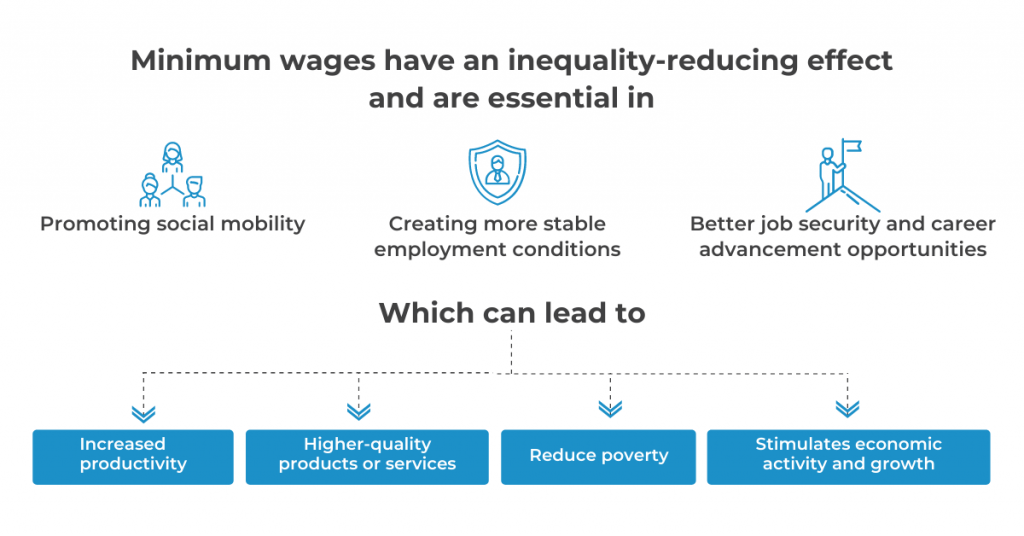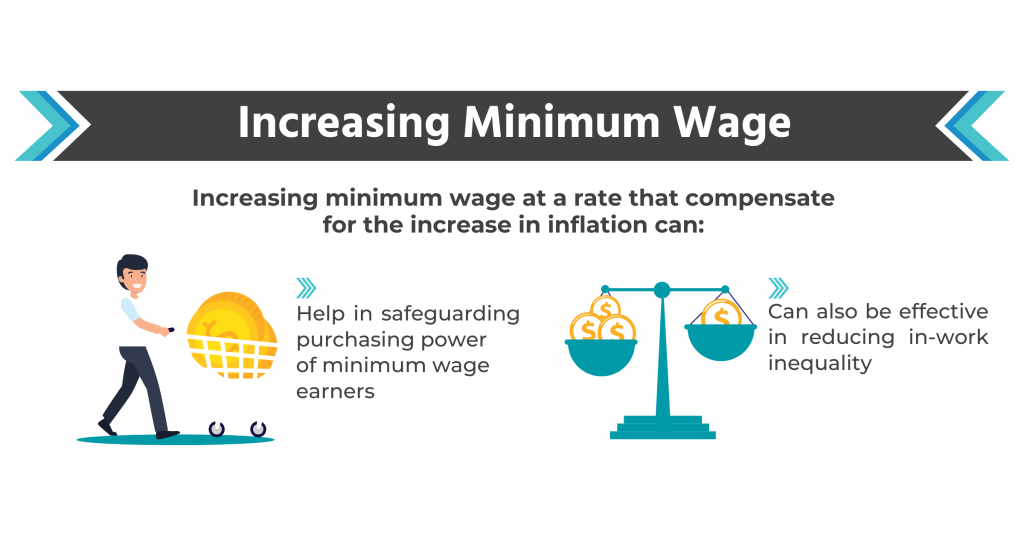The debate surrounding increasing the minimum wage in New Zealand is ongoing and far-reaching. On the one hand, increasing wages could provide a much needed boost for workers living on low incomes and potentially stimulate economic activity at local businesses thus promoting improved health and wellbeing. On the other hand, raising wages could lead to an increase in prices of goods and services as businesses try to pass on higher costs; it could also cause job losses or reduced hours as businesses become less profitable. In this article, we will look at both sides of the argument and consider how policy makers can strike a balance between providing adequate support for those on low pay without stifling economic growth through overly high wage increases.
What is Minimum wage?
In New Zealand, the minimum wage is a cornerstone of labour standards and economic policy. It guarantees that workers are fairly compensated for their work and have access to a basic standard of living. By law, any employee working in the country must be payed at least this amount per hour or face serious repercussions. According to Employment New Zealand (2022), the current minimum hourly wage of New Zealand as of April 2022 was NZ $21.20 for adults and is set to change to $22.70 per hour from 1 April 2023. Over the last five years minimum wage has increased from $15.75 in 2017 to $21.20 in 2021 a 35% increase over this period which is beneficial for those on minimum wage.

Why does minimum wage matter?
The importance of the minimum wage in New Zealand cannot be understated. It ensures that all workers are paid a fair and reasonable rate for their work, regardless of age or type of employment. According to research by international institutions such as the International Labour Organisation (ILO, 2016) and Organisation of Economic Co-operation and Development (OECD, 2022), minimum wages have an inequality-reducing effect and are essential in promoting social mobility, creating more secure employment conditions, and encouraging economic activity at both a local and national level. Minimum wages also help reduce poverty levels by putting money back into the pockets of those who need it most. Above all else, minimum wages are a vital tool for protecting vulnerable workers and ensuring that everyone receives a fair reward for their effort.

The rising cost of living in New Zealand has significantly outpaced the increase in minimum wages, with Stats New Zealand reporting an 8.2% jump from 2021-2022 due to skyrocketing housing, food and transport prices. Meanwhile, according to the Ministry of Business Innovation & Employment (MBIE), minimum wages have only risen 6%, with current rates set at $21.20 per hour for 2022. There is no doubt that New Zealand has some of the highest national hourly minimum wage rates among the OECD countries. However, it still lags behind some developed countries such as Norway, Ireland, Luxembourg and its neighbour Australia, which pay more in hourly wages to its workers as compared to New Zealand (Ellerbeck, 2022). Coupled with the increase in cost of living the low minimum wage disparity highlights the necessity for further evaluation of wage levels in Aotearoa New Zealand.
The case to increase minimum wage
Increasing the minimum wage can safeguard purchasing power and reduce work inequality. It can act as a safeguard against inflation, ensuring that people’s wages keep pace with the rising cost of living. This helps to ensure that those in low-paid jobs are not left behind in economic terms, allowing them to participate more equally in the economy. Additionally, an increase in the minimum wage could help reduce working poverty and inequality between workers on different pay scales. By setting a higher floor for wages, it gives employers less incentive to engage in unfair labor practices such as paying below legal wages or avoiding overtime payments.

Advantages to increasing minimum wage
There are numerous advantages to increasing the minimum wage in New Zealand. Perhaps most importantly, it would ensure that everyone who works hard is able to receive a fair and equitable reward for their effort. This would not only benefit workers themselves but also contribute to a more prosperous and equitable society as a whole.
Minimum wages in New Zealand have led to slight increase in employment levels in New Zealand benefiting around 80,000 workers (MBIE, 2021). This could be seen from the fact that, in the year ending June 2020-2021, net employment growth increased from 0.8% to 0.9%. It is also worth mentioning that minimum wage increases in New Zealand has had a greater positive impact on young people or those aged 16-24 as they are being the largest beneficiary of the minimum wages and have seen an increase in their wages. For example, in 2021, 51% of minimum wage workers were from age group 16-24 even though they comprised of only 16% of the total workforce in New Zealand (MBIE, 2021).
In addition to increasing employment levels, minimum wages in New Zealand have also been effective in slightly reducing poverty in New Zealand. However, it is worth noting that this positive impact of minimum wages has been uneven. For example, it has been found minimum wages in New Zealand have led to a notable reduction in income poverty rates for households without children but has had a limited impact on poverty rates for households with children (MBIE, 2021).
Finally, increasing minimum wage is an important step in helping to bring about economic growth, both for those who benefit from the higher pay, and for local communities. It can provide a boost to the incomes of those on low-pay, as well as help stimulate activity at local businesses by providing more money for people to spend in their local area. In this way, increasing minimum wage has the potential to have a positive effect on both individuals and communities alike. This will lead to greater prosperity and wellbeing for everyone in New Zealand and make our economy stronger for the future (Alinaghi et al., 2019).
Disadvantages to increasing minimum wage
Unfortunately, increasing the minimum wage can also have some negative consequences.
Firstly, it can put too much strain on businesses which may lead to job losses, reduced hours or a decrease in productivity as employers struggle to keep up with the higher wages costs. This is especially true for low skilled workers’ and particularly for small businesses who may not have the resources necessary to pay their employees a living wage (Mare & Hyslop, 2021).
Secondly, raising the minimum wage can cause prices of goods and services to rise throughout New Zealand as businesses try to pass on the cost of higher wages. This could lead to an increase in inflation and decreased purchasing power for all New Zealanders, especially those relying solely on the minimum wage. In addition, increasing the minimum wage can limit employment opportunities as prospective employees become less attractive to employers due to the higher wages they will have to pay. This will be particularly true for businesses operating in sectors such as tourism, hospitality, and retail trade who are most affected by minimum wages because such businesses are most sensitive to cost increases as they hire more wage based employees (MBIE, 2021). According to BusinessNZ, minimum wage increases in New Zealand would lead many small businesses in New Zealand to either shut their operations, find new sources of businesses to pay the minimum wage which might lead them to pass the costs ultimately to people leading to higher cost of living (TVNZ1, 2018).
Finally, when the minimum wage is increased, there can be a reduction in hours worked as businesses employ fewer staff and/or limit their employees’ hours in order to remain profitable. This can be problematic for those on low-pay, low-skilled workers who rely on working full-time hours in order to make ends meet (MBIE, 2021)

Conclusion
Ultimately, when considering the impact of increasing minimum wage in New Zealand, it is clear that while there are potential benefits to be had, such as providing a boost to low-paid workers and stimulating activity at local businesses, there are also drawbacks which must be taken into account. Increasing the minimum wage can put strain on businesses and lead to job losses or reduced hours; it can cause prices of goods and services to rise throughout New Zealand; and it can limit employment opportunities.
One potential solution could involve a combination of increased public spending, subsidies or tax credits which are targeted towards small businesses and those most affected by higher wages, in particular for those in the retail or tourism sectors. In addition, there should be a focus on providing more training and education opportunities so that low-skilled workers can become more employable and transition into better paying jobs (MBIE, 2021). Ultimately this would provide more sustainable solutions for businesses as well as the individuals who benefit from the higher wages.



